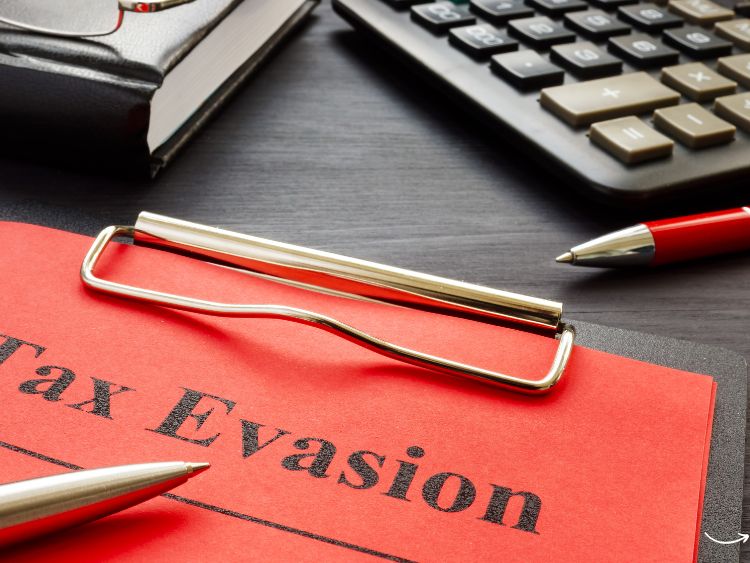So, you’re caught up in a tax dilemma and thinking about hiring a tax evasion lawyer? Don’t worry; you’re not alone. Tax evasion is a serious issue that can lead to hefty fines and even imprisonment. But here’s the good news: a seasoned tax evasion lawyer can help you navigate these murky waters. In this article, we’ll dive deep into what a tax evasion lawyer does, why you might need one, and how to choose the best legal representation for your case. Let’s get started!
What is Tax Evasion?
Tax evasion is the illegal act of not paying taxes owed to the government. This can take many forms, including:
- Underreporting income
- Overstating deductions and exemptions
- Hiding money in offshore accounts
- Not filing tax returns at all
Tax evasion is different from tax avoidance, which involves using legal methods to minimize tax liability. While tax avoidance is perfectly legal, tax evasion can lead to severe legal consequences.
Why Hire a Tax Evasion Lawyer?
Expertise and Knowledge
Tax laws are incredibly complex and constantly changing. A tax evasion lawyer has the expertise and knowledge to interpret these laws and apply them to your situation. They can identify potential pitfalls and devise strategies to protect you.
Negotiation Skills
A skilled tax evasion lawyer can negotiate with the IRS or state tax authorities on your behalf. Whether it’s reducing penalties, arranging payment plans, or settling tax debts, their negotiation skills can be invaluable.
Court Representation
If your case goes to court, having a tax evasion lawyer by your side is crucial. They can represent you in court, present evidence, and make compelling arguments to defend your case.
How to Choose the Right Tax Evasion Lawyer
Look for Experience
When it comes to choosing a tax evasion lawyer, experience is key. Look for someone who has handled cases similar to yours and has a proven track record of success.
Check Credentials
Ensure that the lawyer you choose is licensed and in good standing with the state bar association. Check their credentials and see if they have any certifications or specializations in tax law.
Read Reviews and Testimonials
Reading reviews and testimonials from previous clients can give you insights into a lawyer’s reputation and effectiveness. Look for positive feedback and success stories.
Ask About Fees
Legal representation can be expensive, so it’s essential to understand the fee structure upfront. Some lawyers charge by the hour, while others may offer a flat fee. Make sure you know what to expect and if there are any additional costs involved.
Common Defenses Used by Tax Evasion Lawyers
A tax evasion lawyer can use several defenses to protect their clients, including:
Lack of Intent
One of the most common defenses is to argue that the taxpayer did not intentionally evade taxes. Proving lack of intent can significantly reduce penalties.
Mistake or Ignorance
If the taxpayer made an honest mistake or was unaware of certain tax laws, this defense might be used. While ignorance of the law is not usually an excuse, it can sometimes lead to reduced penalties.
Statute of Limitations
There is a time limit for prosecuting tax evasion cases, known as the statute of limitations. If the time limit has expired, the case may be dismissed.
Insufficient Evidence
A lawyer might argue that the evidence against the taxpayer is insufficient to prove tax evasion. This can involve challenging the accuracy of financial records and documentation.
Steps to Take if You’re Accused of Tax Evasion
- Stay Calm: Panicking won’t help. Stay calm and think clearly.
- Do Not Ignore the Problem: Ignoring tax issues can make things worse. Address the problem head-on.
- Gather Documentation: Collect all relevant financial documents, including tax returns, bank statements, and receipts.
- Consult a Tax Evasion Lawyer: Seek legal advice as soon as possible. A lawyer can guide you on the best course of action.
- Cooperate with Authorities: Cooperating with tax authorities can sometimes lead to more favorable outcomes.
FAQs
What is the difference between tax evasion and tax avoidance?
Tax evasion is illegal and involves deliberately not paying taxes owed. Tax avoidance, on the other hand, uses legal methods to reduce tax liability.
Can a tax evasion lawyer help reduce penalties?
Yes, a tax evasion lawyer can negotiate with tax authorities to reduce penalties, arrange payment plans, and even settle tax debts.
How much does a tax evasion lawyer cost?
The cost of hiring a tax evasion lawyer varies. Some charge by the hour, while others offer flat fees. It’s essential to discuss fees upfront to avoid any surprises.
What should I do if I receive a notice from the IRS?
If you receive a notice from the IRS, do not ignore it. Gather your financial documents and consult a tax evasion lawyer immediately for advice.
Can I go to jail for tax evasion?
Yes, tax evasion can lead to imprisonment, especially in cases involving significant amounts of money or repeated offenses. However, many cases are settled with fines and penalties.
Summary
Navigating the complexities of tax evasion can be daunting, but with the right tax evasion lawyer, you can protect your rights and minimize the consequences. From understanding the intricacies of tax laws to representing you in court, a skilled lawyer can make a significant difference in your case. Remember, the key is to act quickly, stay informed, and choose the right legal representation.
For more information on tax evasion and related legal issues, consider these authoritative sources:
With the right approach and expert help, you can navigate through your tax issues and move forward with confidence.
